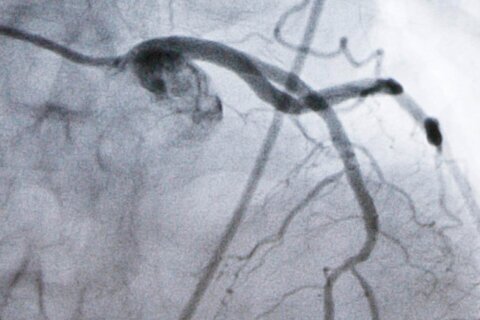
It’s natural to experience some nervousness, anxiety or even a little fear in certain social situations, such as a job interview or meeting new people. But when you have avoidant personality disorder, a type of mental disorder that impairs the way you interact with others, fear and anxiety are so intense they get in the way of functioning.
“People with avoidant personality disorder are fearful, apprehensive and threatened by uncertainty. They experience extreme shyness and unjustified fears of rejection. They may be overly sensitive, feel inadequate and may have difficulty making friends, applying for or holding a new job or going to social gatherings,” explains Dr. Michael Young, a psychiatrist and medical director of the residential psychiatric rehabilitation program at Sheppard Pratt in Baltimore.
The condition leads people to shun situations that require being around others. “Impairment here is significant. Someone may cancel social engagements or job interviews out of fear of being embarrassed. They may spend a lot of time worrying about others’ perception of them and generally have significant feelings of low self-worth due to a belief that they are unworthy,” says clinical psychologist Denise Lash, director of therapy at Intermountain Healthcare in Utah.
People with avoidant personality disorder may also hold back on significant relationships. “They are not necessarily without friends or relationships. They just may feel completely unworthy and struggle to maintain the type of connection that they desire,” says Jeremy Robinson, a psychotherapist in New York City.
[SEE: 11 Tips to Support Someone Struggling with Mental Health.]
Causes and Risks
The traits of avoidant personality disorder often show up during early adolescence.
“The symptoms and traits are ingrained within the character of the individual. They are typically rooted in experiences that occurred throughout critical developmental periods. As one continues to get older, neuropathways of the brain actually develop in relationship to these experiences, resulting in our perceived personality,” notes Michael Wetter, a clinical psychologist and director of psychology at UCLA in the division of Adolescent and Young Adult Medicine.
In other words, you may have a genetic predisposition to avoidant personality disorder that’s triggered by your environment or experiences. “In an environment where people are highly criticized, many develop a critical internal voice that can exacerbate feelings of inadequacy,” Young says.
The risks of having avoidant personality include isolation and feelings of loneliness, which are associated with increased depression and anxiety as well as an increased risk for heart disease, stroke and premature death.
Similarities to Other Conditions
Avoidant personality disorder shares common features with introversion and social anxiety. “In all three, people spend more time alone than the average person,” Lash says. “The differences lie in the reason for preferring to be alone and in how many situations one prefers to be alone — just at work or only with new people, for example — and the impact or disruption that being alone causes.”
A quick way to gauge the differences: “A person with avoidant personality disorder typically has more severe symptoms than someone with social anxiety. Introverts are largely happy alone. Avoidant personalities avoid social interaction, despite a deep unmet need for intimacy. They can be paralyzed by the fear of rejection,” says Dr. Mimi Winsberg, a San Francisco-based psychiatrist.
Other important differences: “Those with social anxiety tend to perceive their own anxiety as irrational, and they understand that they probably judge themselves more harshly than the world actually does. Those with avoidant personality disorder lack this insight and actually believe their feelings of low self-worth and insecurity are factual and accurate. There are usually feelings of shame and self-loathing associated more with avoidant personality than with social anxiety. Social anxiety also only presents in a few specific situations, while a personality disorder involves avoidance and difficulty in most or all aspects of life,” says Holly Schiff, a clinical psychologist with Jewish Family Services of Greenwich, Connecticut.
[See: Top Medications for Anxiety.]
The Crisis Impact
Feelings of apprehension in dealing with uncertainty are normal for anyone in times of crisis or turmoil, such as the coronavirus pandemic or political or social upheaval. And for people with avoidant personality disorder, the last few years have been especially challenging.
“The pandemic has forced people to live in a constant state of uncertainty,” Schiff says. “Now, these individuals are worried about re-entering into social contact and situations and circumstances that will require them to interact with others. They may feel inadequate, inferior to others, and worried about being embarrassed, ridiculed or simply not liked or approved of by others.”
Many experts say they’re seeing an increase in avoidant personality disorder behaviors. “People don’t want to be judged and criticized (or canceled) and so they are avoiding conversations and interactions, especially if there are differences in point of views expressed. There are lots of examples of this as our social situation on and offline seems pretty critical and toxic now,” says Thomas Plante, a psychologist and faculty member at both Santa Clara and Stanford Universities.
[Read: What Are the Long-Term Effects of COVID-19?]
Diagnosis
When intense anxiety keeps you from seeing others, it may be time to seek help. Start with your primary care doctor, who can make sure an underlying condition isn’t causing your symptoms.
If necessary, you may be referred to a psychologist or psychiatrist, who can perform an avoidant personality disorder evaluation and psychological testing.
To be diagnosed with the condition, you must meet four symptom categories of the American Psychiatric Association’s Diagnostic and Statistical Manual of Mental Disorders, 5th Edition, also called DSM-5.
These criteria include:
— Avoiding activities related to jobs involving interpersonal contact, due to fears of disapproval, criticism or rejection.
— Not wanting to get involved with people unless you’re sure of being liked.
— Displays of restraint in intimate relationships because of the fear of being ridiculed or shamed.
— A preoccupation of rejection or criticism in normal social situations.
— Inhibition in new interpersonal situations because of feelings of inadequacy.
— Viewing yourself as socially inept, personally unappealing and inferior to others.
— Feeling unusually reluctant to take personal risks or engage in new activities because they may prove embarrassing.
Treatment
Since avoidant personality disorder often goes hand-in-hand with anxiety or depression, managing your condition may include medications to treat mood disorders, such as antidepressants like fluoxetine (Prozac) or sertraline (Zoloft).
But the first line of defense will most likely be psychotherapy, including:
— Dialectical behavior therapy. “This is a form of cognitive behavioral therapy that focuses on aspects such as interpersonal effectiveness, mindfulness, emotion regulation and distress tolerance,” Young says.
— Group therapy. “Group therapy can be helpful, since it will help the individual learn to develop relationship and communication skills in a safe place,” Schiff says.
— Psychoanalysis. This takes place with a psychiatrist or psychologist who has special training. It requires four or five sessions per week.
— Psychodynamic psychotherapy. “This is insight-oriented and helps people understand how the past affects the present,” Young explains.
Going to therapy regularly can be difficult. “For someone with avoidant personality disorder, telling someone your most profound fears keys right into their most profound fears. It can be done, but it can take a while and a lot of courage,” says Aimee Daramus, a psychologist based in Chicago.
[Read: Foods and Drinks Linked to Anxiety.]
Other ways to treat avoidant personality disorder include:
— Exercise. Regular exercise can reduce stress hormones and increase our endorphins, the body’s natural painkillers.
— Getting enough sleep. Sleep is essential to regulating mood and increasing resilience to stress.
— Eating a healthy diet. Good nutrition is essential for the building blocks of important brain chemicals.
— Taking part in wellness activities. Activities for the mind and body, such as yoga, Pilates or spending time in nature, can reduce stress and be very restorative.
— Stretching outside your comfort zone. “Develop a plan with your therapist to try things outside your comfort zone and develop interpersonal relationships and learn to manage stress associated with that. Over time, you’ll acclimate to doing more things in a gradual way and change your relationship with anxiety,” Young says.
How effective are these approaches?
“Remember, we are talking about personality and character issues,” Plante says. “This is who you are. So you don’t cure this but learn to cope better with it.”
In time, you may even be able to put avoidant personality disorder into remission. “Treatment is very effective,” Young says. “Once you get effective treatment, often you can grow beyond it. You may still have the traits of being more avoidant than others, but you may no longer meet the criteria for the condition.”
More from U.S. News
11 Simple, Proven Ways to Optimize Your Mental Health
6 Surprising Signs You May Have Anxiety
Tips to Support Someone Having a Panic Attack
What Is Avoidant Personality Disorder? originally appeared on usnews.com
Update 03/18/22: This story was published at an earlier date and has been updated with new information.








